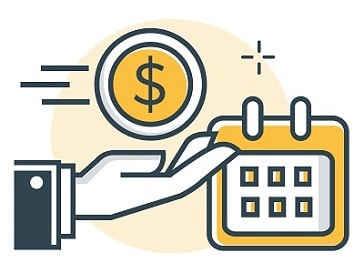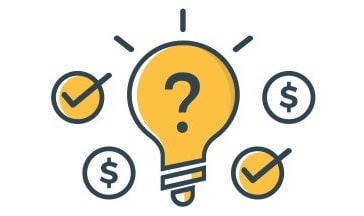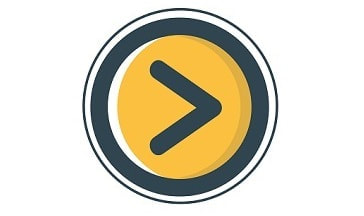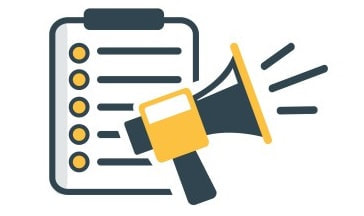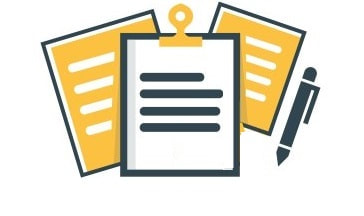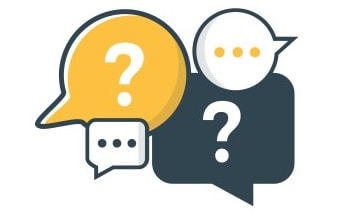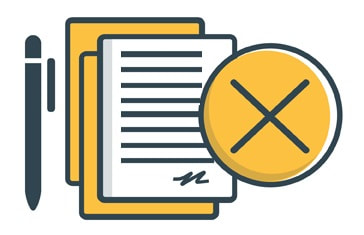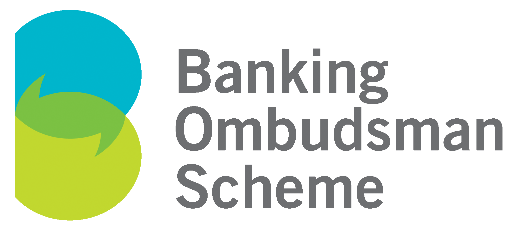How to Request a Credit Card Chargeback - The Definitive New Zealand Guide
If you have been paid for good or services not received, our definitive guide to chargebacks walks you through the process, step by step, to help you get back the money you're owed
Updated 18 July 2024
Despite an unprecedented level of refund complaints about companies such as Air New Zealand, Airbnb and Expedia, there is yet to be a standard card chargeback process. Our guide explains your rights, options and outlines the best way to get a favourable outcome for any disputed charge made to your card.
In this guide, we outline:
Read this first:
Why are chargebacks now popular?
Until COVID-19, very few New Zealanders ever needed to dispute charges with their credit card or debit card provider. However, the billions of dollars spent on cards for future travel became a massive issue in early 2020 when customers, having had their trips cancelled, weren't refunded by airlines, hotels and travel agents. New Zealand banks were then inundated with refund requests, known as chargebacks, but little was known about the process.
MoneyHub Founder Christopher Walsh explains important points and must-know facts about chargebacks in the video below:
In this guide, we outline:
- Does my Transaction Qualify for a Chargeback?
- Chargebacks on EFTPOS and Debit Cards - What You Need to Know
- General Requirements to Initiate a Chargeback
- How to Organise a Chargeback
- Frequently Asked Questions to Help You Get Your Money Back
- What happens if my card issuer (i.e. bank) rejects my chargeback request?
- Comments from the Banking Ombudsman around timeframes and chargeback/recovery scams
Read this first:
- This guide does not cover debit or credit card fraud. If you are a victim of charges you don't recognise or have been unauthorised, contact your bank immediately.
- The guide is also exclusively for New Zealand-registered debit and credit cards; the guidance does not apply to foreign registered cards.
- We present this information in good faith; chargebacks are contentious and uncertain - our guide helps to bring clarity to the matter.
Why are chargebacks now popular?
Until COVID-19, very few New Zealanders ever needed to dispute charges with their credit card or debit card provider. However, the billions of dollars spent on cards for future travel became a massive issue in early 2020 when customers, having had their trips cancelled, weren't refunded by airlines, hotels and travel agents. New Zealand banks were then inundated with refund requests, known as chargebacks, but little was known about the process.
MoneyHub Founder Christopher Walsh explains important points and must-know facts about chargebacks in the video below:
Know this first – what is a chargeback and why you may need to request one
A chargeback occurs when the money you've paid to a merchant (i.e. airline, online store) using a debit or credit card, is refunded back to the card you paid with. Chargebacks usually occur when the merchant is unwilling to refund you, or you're unable to negotiate directly with the merchant. Chargebacks have time limits, meaning you'll need to act quickly to get your money back.
A chargeback usually arises in one of a few ways:
- You buy something online, your debit or credit card is charged, but the goods never show up. Requests to contact the merchant for an update are ignored, and you're left out of pocket.
- You prepay travel expenses, such as hotels or airline tickets and the airline cancels the flight or the hotel closes down but offers you 'credit' for future travel, not a refund.
- You buy something but unknowingly (and unreasonably) have your card charged later on as part of a 'subscription' you don't want or need. You ask the merchant for a refund, but they decline using their terms and conditions as their defence.
- The merchant promises to refund you, but the refund never eventuates.
- You buy something from a company that goes bankrupt before they provide the goods or services you paid for. A recent example is the collapse of STA travel.
If your situation is the same (or similar) to one of the examples above, a chargeback is the most likely way to get your money back.
Does my Transaction Qualify for a Chargeback?
Your transaction needs to fit into one of nine categories in order to qualify:
Time Limits
- The Merchandise/Services you paid for was not received
- You cancelled a recurring transaction (insurance, subscription etc.) but they kept on charging you
- The service or product that you received was damaged, defective or not as described.
- You received counterfeit merchandise, but you expected original or genuine merchandise.
- The merchant misled you about the terms of sale.
- You were promised a refund but you never actually received it.
- The merchant cancelled your goods or services but then failed to refund you after you asked.
- You tried to withdraw cash from your credit card, but the machine didn't give it to you.
Time Limits
- There are also time limits to consider. We asked an expert in the field - their comments are as followed:
- "Time limits are where we find the most confusion and misinformation. Different banks say different things, even though Visa and Mastercard make the rules. The time limits are 90 days from the transaction or 120 days from the expected provision of service. In cases such a buying a faulty product from a shop. You have 90 days to make a claim.
- For services you expect to be provided (i.e. flights, hotels and other tickets), it's best explained with an example. If you purchased flights 12 months ago and departure was less than 4 months ago, your transaction would be within the timeframe rules set by Visa and Mastercard and your bank would be able to process your chargeback.
- 120 days also applies to refunds promised but not received. According to Visa and Mastercard rules, you only need to wait for 15 days to receive a promised refund so get your chargeback submitted if you haven't received your refund after a couple of weeks".
Chargebacks on EFTPOS and Debit Cards - What You Need to Know
Can I chargeback an EFTPOS transaction?
No – if you paid with EFTPOS then you won't be able to request a chargeback. This is because chargeback protection is provided by MasterCard or Visa's processing systems, whereas EFTPOS uses a different exchange.
Can I chargeback a debit card transaction?
It depends - In New Zealand, if you inserted or swiped your debit card at the payment terminal, then the transaction would go through EFTPOS and can't be charged back. If you paid with your debit card online, over the phone or in-person using contactless and the transaction goes through Mastercard or Visa, it is eligible for a chargeback.
How do I check if my debit card transaction went through Visa, Mastercard or EFTPOS?
To help answer this question, we asked our expert who supplied this detailed response:
If you're certain that you paid online, then there is no need to check—you're covered. If you paid in person, then here is how you can check to see how the transaction was processed:
Know this: If you paid with a credit card, then don't worry as all transactions are protected no matter how you used the card.
If you're certain that you paid online, then there is no need to check—you're covered. If you paid in person, then here is how you can check to see how the transaction was processed:
- ANZ - click on the transaction from their online banking or mobile banking app.
- ASB and Kiwibank - you will need to call them and ask. There online and mobile apps won't tell you.
- BNZ - you will need to call them and ask. Their online and mobile apps incorrectly report all transactions as EFTPOS even when they go through Mastercard or Visa.
- Westpac - each transaction on the printed statement will indicate this.
- Other banks (TSB, SBS, Co-Operative etc) - call their support team and ask
Know this: If you paid with a credit card, then don't worry as all transactions are protected no matter how you used the card.
Important – General Requirements to Initiate a Chargeback
Having the best chance of chargeback success requires following the right four-step process, which we outline below:
Ask for your money backBefore initiating a chargeback, you must have made it clear to the merchant that you want your money back. Even if you have done this in person or over the phone, your bank will ask for a copy of your written request. Chargebacks are a nightmare for merchants, so it's only fair that you allow them to resolve the situation before disputing the transaction with your bank.
|
Gather your evidenceTo have the best chance of chargeback success, you'll need to collect the following:
|
Write your storyYour chargeback claim will eventually end up on the desk of dispute manager at your bank. You want to make their job easy so that they can quickly approve the chargeback. We suggest outlining a bullet-point factual summary of all the events, in chronological order. Here is an example:
|
Submit your case to your bankNow that you have everything ready, you now need to submit it to your bank. Most banks have a form on their website that you can download, complete and then email back to them. The notable NZ exceptions are ASB and Kiwibank who require you to call them first to start the chargeback process.
Our expert comments further: "We strongly advise caution here as bank branch workers and call centre operators are not well trained on chargebacks. We have recorded numerous cases of them advising customers that they can't make a claim, despite the claim being eligible". |
Next Steps – Organise a Chargeback
Apply directly with your card issuer
You can do this by following your bank's chargeback guidance:
Our view: The chargeback process helps protect consumers, but it costs a lot of time and money for the banks to administer. Unfortunately, this means the process is cumbersome and involves filling out forms and supplying evidence. There is simply no reason for the banks to make it easy as they are losing money with every interaction.
You can do this by following your bank's chargeback guidance:
Our view: The chargeback process helps protect consumers, but it costs a lot of time and money for the banks to administer. Unfortunately, this means the process is cumbersome and involves filling out forms and supplying evidence. There is simply no reason for the banks to make it easy as they are losing money with every interaction.
Chargebacks - Frequently Asked Questions to Help You Get Your Money Back
Navigating chargebacks, and having a successful outcome, can be difficult, especially and there is very little published guidance and support from banks and merchants. To help give you the best chance of getting your money back we have listed common queries and answers below.
The retailer is telling me they don't have enough money to refund me – will this affect the chance of a chargeback success with my bank?
No – chargebacks are processed by banks or the card issuer, not the retailer or merchant you transacted with. The card issuer will then attempt to claim the money back from the merchant, but this is not a prerequisite for getting your money back. For example, if you didn't receive something you ordered and the merchant says it has no money to refund you, you have a valid chargeback claim that the card issuer can cover. Whether the bank gets the money back from the retailer, later on, isn't your concern.
The merchant has gone into liquidation or bankrupt – can I still request a chargeback if I didn't receive my goods or services?
Yes – chargebacks are a benefit of using a debit or credit card. The case of STA Travel going bust saw many customers requesting chargebacks.
Our expert provides additional guidance about companies no longer trading:
The key takeaway is that you should get your chargeback in as soon as possible when a company you're relying on goes under.
Our expert provides additional guidance about companies no longer trading:
- When a company goes under, the bank that they used to process their Visa and Mastercard transactions becomes liable for any services or products that have been paid for but not supplied.
- This means that the merchant's bank will be the one paying you back (via your bank) if your chargeback is successful.
- The main thing, however, is that your purchase must be within the chargeback timeframes. Here are some examples:
- Joe purchased air tickets to Brisbane 12 months ago, but the flight was cancelled two months ago. Then one month later, his travel agent went bust. Joe would be successful with his chargeback.
- Sam purchased air tickets to Brisbane 12 months ago, but the flight was cancelled five months ago. Then four month later, his travel agent went bust. Joe would NOT be successful with his chargeback as his flight date was outside the 120-day limit. If Joe had rescheduled his flight to a future date, then the flight would be within the timeframe, and he would be successful with his chargeback.
- Sally purchased air tickets to Brisbane 12 months ago, but the flight was cancelled three months ago. She was then promised a full refund in writing, but it never came. Her travel agent then went bust. Sally would be successful with her chargeback
The key takeaway is that you should get your chargeback in as soon as possible when a company you're relying on goes under.
The merchant is overseas, and the transaction was in a foreign currency – can I still request a chargeback?
Yes – your right to a chargeback is the same no matter where the transaction took place or what currency it was in. The only requirement is that the transaction was made on a New Zealand-issued debit or credit card, and you meet the application criteria.
I returned goods within the return period, but my refund wasn't processed. Now the retailer won't talk to me – can I request a chargeback?
Yes – the bank will ask for evidence of the goods being returned, email exchanges from the merchant's customer support and other essential documents such as tracking number to prove the returned goods. The bank assesses the application and, unless there are any issues, your chargeback should be approved.
Can I request a chargeback if I no longer want the items I purchased (or the services are yet to be provided), but I've now changed my mind about the purchase?
No – as the Banking Ombudsman Scheme states cardholders need a valid reason in seeking a refund on a disputed transaction. A change of mind is not a valid reason. Other reasons your chargeback application will be rejected include:
- You're not happy with the quality of the good or service provided (this is an issue for the merchant to address, not the card issuer).
- You found a better price somewhere else and now want to cancel or return your order.
- You didn't cancel a renewing subscription which has been charged despite reminders about the renewal.
- Your issue is due to the billing – for example, a power or broadband bill. Such problems need to be negotiated with the service provider or seller of the goods.
- You have a contract with the merchant, and the chargeback relates to a dispute – you must deal with the company or person directly to resolve such issues.
- You have a software download dispute with the merchant – you'll need to talk to the service provider to resolve the software issue.
What credit card is best for chargebacks, and what is worst?
In New Zealand, there are three credit card providers – American Express, Mastercard and Visa. Mastercard and Visa are issued by banks, credit unions and some long-term finance providers such as Latitude (via the GEM Visa) and FlexiGroup (via the Q Mastercard). American Express sits outside the banks and third parties – if you have one of their cards, you directly deal with them. Having reviewed the products and processes of credit card providers in New Zealand, we believe American Express offers the best consumer protection. The benefits include having a helpline, a provider that has a transparent process for its customers and a track record of approving chargebacks. In comparison, we have observed difficulties with securing chargebacks using Mastercard and Visa-issued cards.
Throughout 2020 as we researched this guide, we contacted Visa and Mastercard to clarify their chargeback process. However, all we received was silence despite assurances our queries would be addressed promptly. The banks we contacted were also unwilling to confirm their chargeback process. For this reason, we affirm our belief that American Express, with its long-standing history of working with cardholders directly, is much easier to navigate should you need to request a chargeback.
Throughout 2020 as we researched this guide, we contacted Visa and Mastercard to clarify their chargeback process. However, all we received was silence despite assurances our queries would be addressed promptly. The banks we contacted were also unwilling to confirm their chargeback process. For this reason, we affirm our belief that American Express, with its long-standing history of working with cardholders directly, is much easier to navigate should you need to request a chargeback.
What happens if my card issuer (i.e. bank) rejects my chargeback request?
Asking the bank for a chargeback puts you in a David and Goliath situation – the process is undefined, and you have very little power. The first step is to explain why your transaction doesn't warrant a chargeback if you are rejected. If you're not satisfied with the response, you can complain to the Banking Ombudsman. Before you do, closely read their chargeback guidance.
MoneyHub Researcher Christopher Walsh shares his experience:
"In 2020, we were approached by a MoneyHub user who was scammed via Facebook. The transaction in dispute was for over US$300 (around NZ$450 at the time). The complainant had purchased an e-book for around NZ$15 but, one month later, charged another US$300 for a 'subscription service to premium e-books'. It was a scam, and the merchant was unwilling to refund. Instead, their customer service team sent emails threatening 'criminal and civil prosecution' if further complaints were received. The bank who issued the credit card didn't seem interested either, telling their customer to sort it out with the merchant.
Given no refund was going to be given, MoneyHub, on behalf of the bank, contacted the bank directly and had the money refunded within a couple of days. As part of the settlement, we cannot name the bank. We believe the banks don't have a set process for dealing with anything that isn't a blatant fraud".
MoneyHub Researcher Christopher Walsh shares his experience:
"In 2020, we were approached by a MoneyHub user who was scammed via Facebook. The transaction in dispute was for over US$300 (around NZ$450 at the time). The complainant had purchased an e-book for around NZ$15 but, one month later, charged another US$300 for a 'subscription service to premium e-books'. It was a scam, and the merchant was unwilling to refund. Instead, their customer service team sent emails threatening 'criminal and civil prosecution' if further complaints were received. The bank who issued the credit card didn't seem interested either, telling their customer to sort it out with the merchant.
Given no refund was going to be given, MoneyHub, on behalf of the bank, contacted the bank directly and had the money refunded within a couple of days. As part of the settlement, we cannot name the bank. We believe the banks don't have a set process for dealing with anything that isn't a blatant fraud".
Nicola Sladden, the Banking Ombudsman, shares her comments around timeframes and 'advocates' (also known as recovery room scams).
Timeframes for charging back transactions - there are usually at least two different timeframes involved:
1. The timeframe set by banks under their terms and conditions for customers to notify them of any incorrect, unauthorised or disputed charges
2. The timeframe set by the card providers from the date of the transaction. In most cases, this is 120 days for Visa and 90 days for Mastercard.
Concerns about organisations that charge to act as advocates for bank customers seeking chargebacks:
Timeframes for charging back transactions - there are usually at least two different timeframes involved:
1. The timeframe set by banks under their terms and conditions for customers to notify them of any incorrect, unauthorised or disputed charges
- This timeframe is usually between 30 and 90 days – a reasonable enough time for a customer to receive and review statements and alert the bank to any problems. But there also needs to be sufficient time to allow the customer to raise the issue with the merchant and for the bank to assess the chargeback request before the card provider's timeframe expires (see below).
- If a customer requests a chargeback outside of the bank's timeframes but within the card provider's timeframe, we think it is fair for the bank to process the chargeback, nonetheless, if possible. In other words, banks shouldn't decline chargeback requests where they weren't notified within the timeframe specified in their terms and conditions unless the delay means it is no longer possible to do a chargeback.
2. The timeframe set by the card providers from the date of the transaction. In most cases, this is 120 days for Visa and 90 days for Mastercard.
- The timeframe set by the card providers for the future provision of goods and services. There are different timeframes for charging back transactions because the goods and services were not provided or not as described where the purchase was for goods or services to be provided in the future (commonly for accommodation, travel, entertainment, etc.).
- The 120/90 day timeframe starts from when the service/goods were to be provided (as opposed to the transaction date) – provided this is within a certain timeframe from the transaction date (540 days for Visa, and usually 365 for Mastercard).
Concerns about organisations that charge to act as advocates for bank customers seeking chargebacks:
- These organisations often have a poor understanding of chargeback rules, banking practices and laws in New Zealand. We don't believe they provide value for money, and are sometimes another form of scam. See our quick guide to recovery room scams for more information. Thus, we recommend against paying online services for help with chargebacks. If customers require assistance to try and recover the funds, their banks and our office can help for free.

